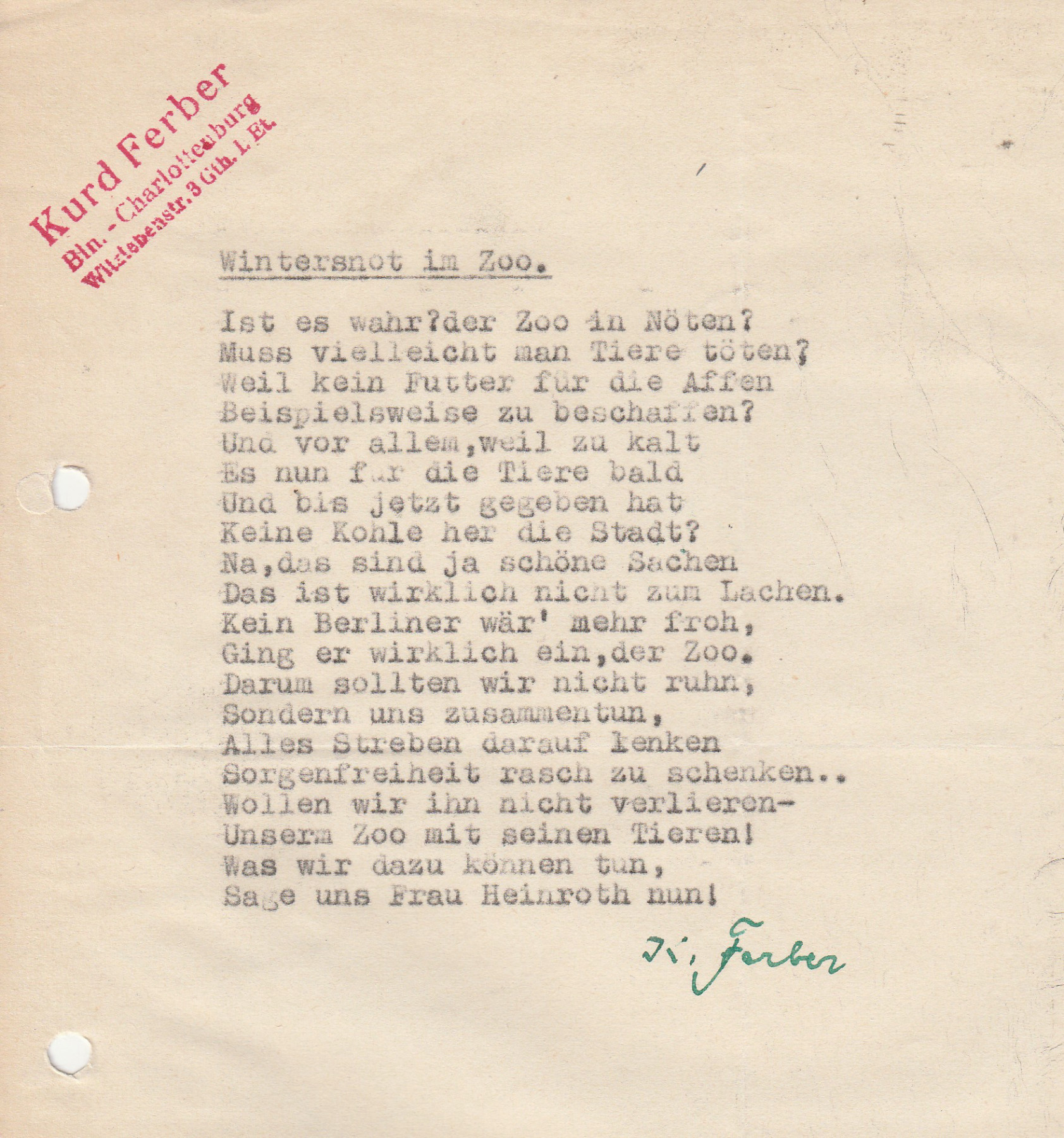
Poem by zoo visitor K. Ferber about “Winter Hardship at the Zoo”, 06.10.1948. (AZGB. All rights reserved.)
A poem sent to director  Katharina Heinroth by a visitor in autumn 1948 does not just give us an impression of the situation at the zoo back then but also relates some of the
Katharina Heinroth by a visitor in autumn 1948 does not just give us an impression of the situation at the zoo back then but also relates some of the  compassion that Berlin’s population had for the fate of the zoo animals. At the zoo, as in Berlin, there was
compassion that Berlin’s population had for the fate of the zoo animals. At the zoo, as in Berlin, there was  not enough of anything – not enough food, construction materials, or fuel. Back then, in the midst of the Berlin Blockade, Katharina Heinroth and her staff were on the verge of being forced to give the animals away to other zoos or to have them killed due to
not enough of anything – not enough food, construction materials, or fuel. Back then, in the midst of the Berlin Blockade, Katharina Heinroth and her staff were on the verge of being forced to give the animals away to other zoos or to have them killed due to  feed scarcity. The director thus issued a call to the population in the daily newspapers to support the zoo by donating food or gathering acorns and chestnuts. The poem is one of many other pieces of writing that reveal the willingness of Berlin’s residents to help and gives us an idea of the role that the zoo played for them during this time – as one of the few sites of recreation and possibly connected with the idea of a community united in times of trial.
feed scarcity. The director thus issued a call to the population in the daily newspapers to support the zoo by donating food or gathering acorns and chestnuts. The poem is one of many other pieces of writing that reveal the willingness of Berlin’s residents to help and gives us an idea of the role that the zoo played for them during this time – as one of the few sites of recreation and possibly connected with the idea of a community united in times of trial.
Transcript
Winter Hardship at the Zoo.
Is it true? Is the zoo in need?
Could animals be killed?
Because no food for the monkeys
Can be procured?
And above all because it will be too cold
For the animals soon
And so far there has been
No coal from the city?
Well, that’s just great.
It’s not really anything to smile about.
No Berliner would be happy ever again
If it really closed down, the zoo,
Which is why we should not rest,
But band together,
Direct all our efforts
Towards freeing the zoo of its woes
If we don’t want to lose it –
Our zoo and its animals!
What we can do,
Tell us now Frau Heinroth!